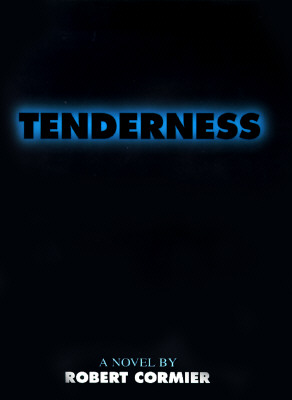 By ROBERT CORMIER (Bantam Doubleday; 1997)
By ROBERT CORMIER (Bantam Doubleday; 1997)
A disappointment from Robert Cormier (1925-2000), the greatest young adult novelist of the last century. TENDERNESS is extremely well written, as are all of Cormier’s novels, and has a compelling premise that would appear to play to all of his strengths, yet it just never takes off.
That premise involves fifteen year old Lori Cranston, a girl who’s maturing (outwardly at least) at an extremely fast rate, and isn’t above using her physical attributes to squeeze money out of the opposite sex. Coming from a broken and impoverished home, Lori desires tenderness above all else, and believes she may have found it in the form of a gallant young man she met several years earlier.
That young man is Eric Poole, who like Lori places a high value on tenderness. His way of manifesting it is decidedly different from hers, involving psychopathology, bloodletting and murder. Victims of his “tender” touch include three girls and his own parents, for which he’s incarcerated. Upon Eric’s release Lori, having run away from home, becomes determined to track him down. The meeting, which takes over half the book to occur, is a fateful one, although not nearly as much as you might expect.
The novel has been somewhat influential in the years since its initial publication; it would appear to have inspired Michael Louis Calvillo’s AS FATE WOULD HAVE IT (2009), which has a somewhat similar set-up. Calvillo’s novel, alas, only points up what’s wrong with this one, being a relentless and uncompromising account that follows its warped premise to its logical conclusion. TENDERNESS, by contrast, lacks the courage of its convictions, crapping out long before the end.
Another problem is with Cormier’s over-utilization of clichés. They include the overly familiar aging cop character who puts off his retirement to take down Eric, and the use of (Semi-Spoiler Alert!) an accidental death that has the paradoxical effect of meting out justice, a device utilized most famously in Friedrich Durrenmatt’s masterful THE PLEDGE, where it added a magnificently ironic, darkly comedic angle to the proceedings but smacks of desperation here, a fumbled attempt at adding thrills to an ersatz “thriller.”
